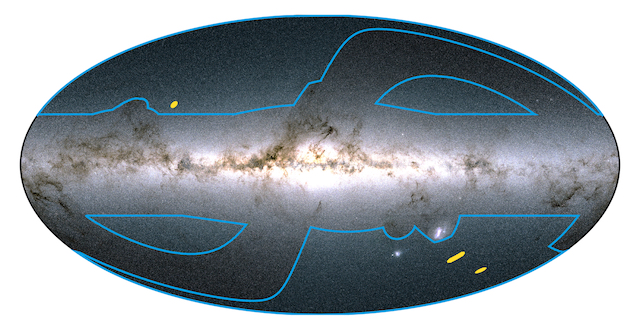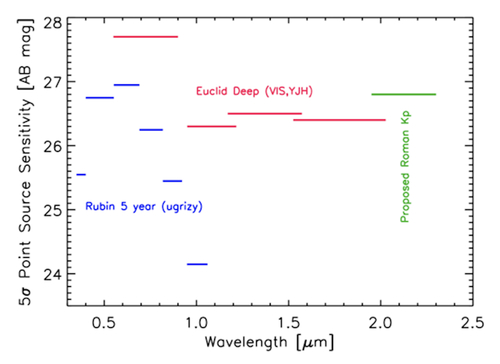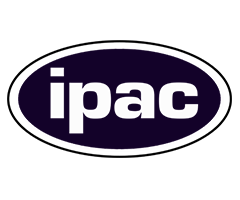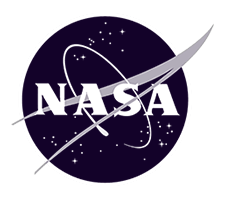Roman Early Science White Paper Submitted

News • October 22nd, 2021
Members of the IPAC JSP team submitted an Early Science White Paper to the Roman project.
We recommend KRONOS-E (Kp Roman Observations: New Opportunities from Surveying the Euclid fields), an early-definition Roman initiative to observe the 40 square-degrees Euclid Deep Fields to comparable depths with the Roman Kp filter (F213) and with the grism.
The recommended survey should be of duration 610 hrs in the three Euclid Deep Fields (shown in yellow on the all sky image) which cover a total of 40 square degrees. By 2027, these areas will have an unprecedented amount of data from Euclid imaging and grism spectroscopy, Subaru/HSC and PFS, and ~5 years worth of Rubin/LSST imaging to matching depths. It has also been covered by the Spitzer Space Telescope (Moneti et al. 2021). Defining the fields early will guide complementary observations with other facilities like Chandra, LMT and VLA, while enabling a better execution of the Roman HLS and increased fidelity on Euclid measurements of cosmological parameters. It will reveal systematics through a cross-project comparison of shear, PSF effects, and the spectral purity/completeness of the grism spectra. It will also allow the identification of primordial stellar populations and seed black holes in rare, z > 10 galaxies which can then be followed up with JWST. With low backgrounds and bright star density, these fields will encompass the Roman Deep Fields as well.
Members of the proposing team include: Ranga-Ram Chary (Caltech/IPAC), Anahita Alavi (Caltech/IPAC), Phil Appleton (Caltech/IPAC), Adam Bolton (NOIRLab), Nima Chartab (UC Irvine), Asantha Cooray (UC Irvine), Jean-Gabriel Cuby (U.Marseille, France), Arjun Dey (NOIRLab), Mark Dickinson (NOIRLab), Andreas Faisst (Caltech/IPAC), Kyle Finner (Caltech/IPAC), Shoubaneh Hemmati (Caltech/IPAC), Marziye Jafariyazani (Caltech/IPAC), Stephanie Juneau (NOIRLab), Dustin Lang (Perimeter Institute, Canada), Bomee Lee (KASI, S. Korea), Dan Masters (Caltech/IPAC), Hironao Miyatake (Nagoya, Japan), Robert Nikutta (NOIRLab), Pascal Oesch (U. Geneva, Switzerland), Knut Olsen (NOIRLab), Harry Teplitz (Caltech/IPAC), and Sune Toft (Niels Bohr Institute, Denmark).






